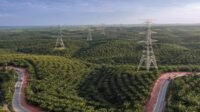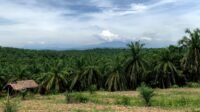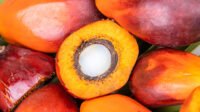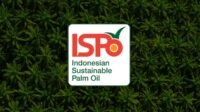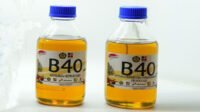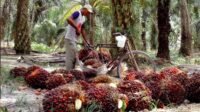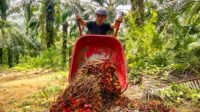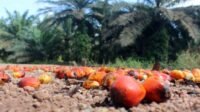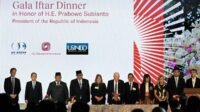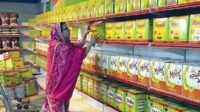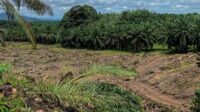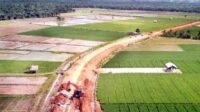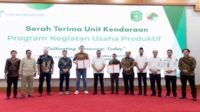PALMOILMAGAZINE, JAKARTA – Saleh Husin, Indonesia’s Minister of Industry from 2014 to 2016, took the stage to launch his book, “Hilirisasi Sawit Cegah Middle Income Trap,” which not only presented ideas but also outlined his strong vision for Indonesia’s future. The book underscores the significant potential of the palm oil industry as a key driver toward achieving the nation’s ‘Indonesia Emas 2045’ vision.
During the event, attended by prominent figures such as former Vice President Jusuf Kalla, Minister of Industry Agus Gumiwang Kartasasmita, and Minister of Transportation Budi Karya Sumadi, Saleh passionately shared his insights. “There is only one Indonesian product that dominates global trade—palm oil,” he said, his confidence resonating throughout the room as he emphasized palm oil’s critical role in the country’s economy.
The figures he presented were striking: Indonesia’s palm oil exports, valued at $30 billion, have positioned the country as a global leader in the industry. However, Saleh stressed that the country must move beyond just exporting raw materials. The development of downstream sectors is crucial for maximizing the potential of palm oil.
Also Read: Strategies for Enhancing Palm Oil Productivity in Marginal Areas
He highlighted the benefits of expanding these sectors, citing the example of the biodiesel program—B35—which could save Indonesia up to Rp 161 trillion in revenue. Additionally, the palm oil downstream industry has the potential to create 20 million jobs and deliver substantial social benefits to the Indonesian people.
Not only from the economy, he knew that palm oil downstream sectors would play decarbonization to realize zero carbon emission. He said, by optimizing palm oil products, Indonesia could reduce carbon emission up to 35 million tons CO2. This could be the big step heading to the commitment of Indonesia in net zero emission.
Unfortunately, behind the achievements, there would be challenges to face. Even though Indonesia mastered palm oil trade in the globe, the irony is that the price is determined by the outsiders. “Unfortunately, we, as the master of this commodity, are controlled by the outsiders in its price,” Saleh said, as Palmoilmagazine.com quoted from Antara, Friday (11/10/2024).
To solve it, he emphasized it would be significant to get collaboration. Ministries, institutions, and every stakeholder should be synergy to confirm the additional values from palm oil downstream products to be more optimal. It means, Indonesia would master not only in the production volume but also control the trade.
The book launching should not be a ceremony only but also should be the invitation for every party to optimize the potential of palm oil together. Saleh Husin through his book, he moved the awareness that behind the wide palm oil plantations, the hidden one would be the key heading to the future prosperity in Indonesia. (P2)





